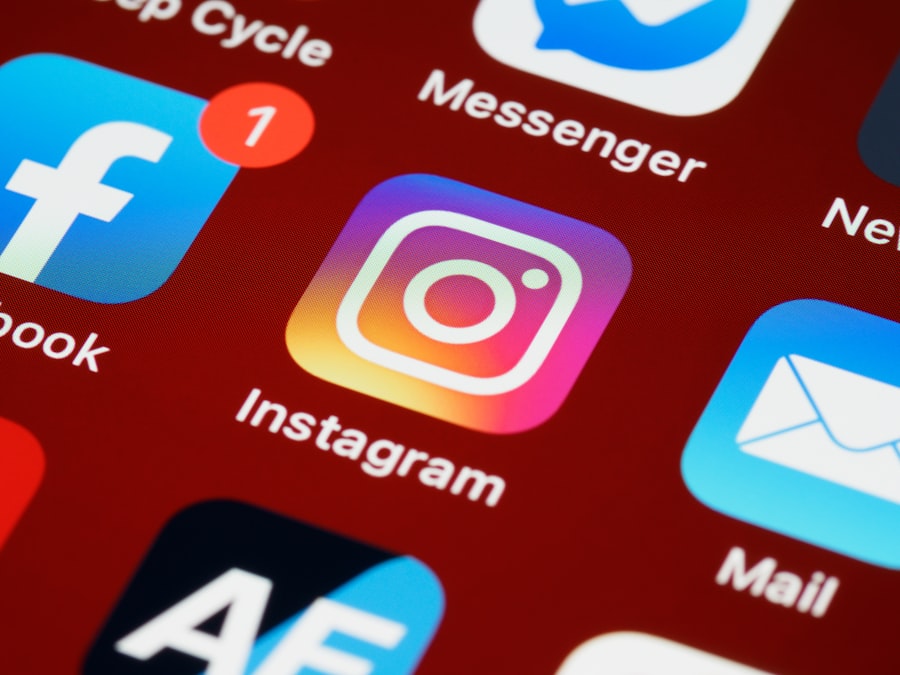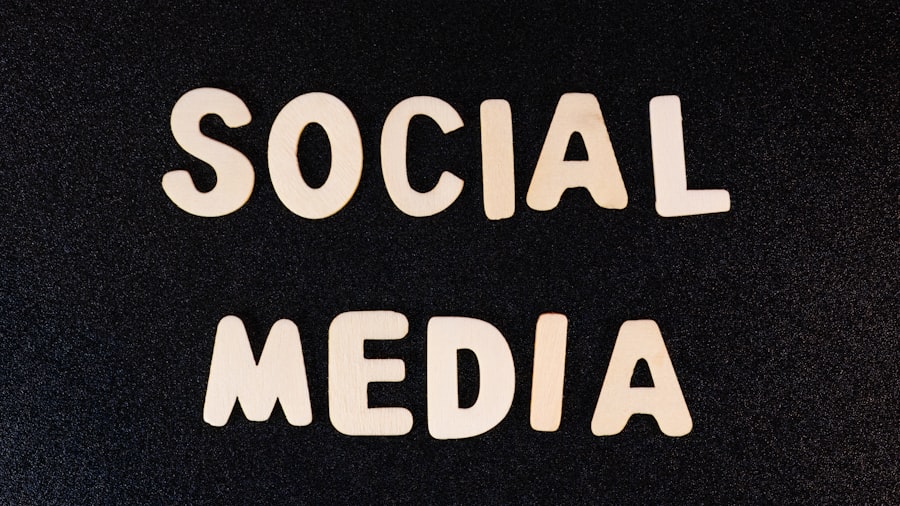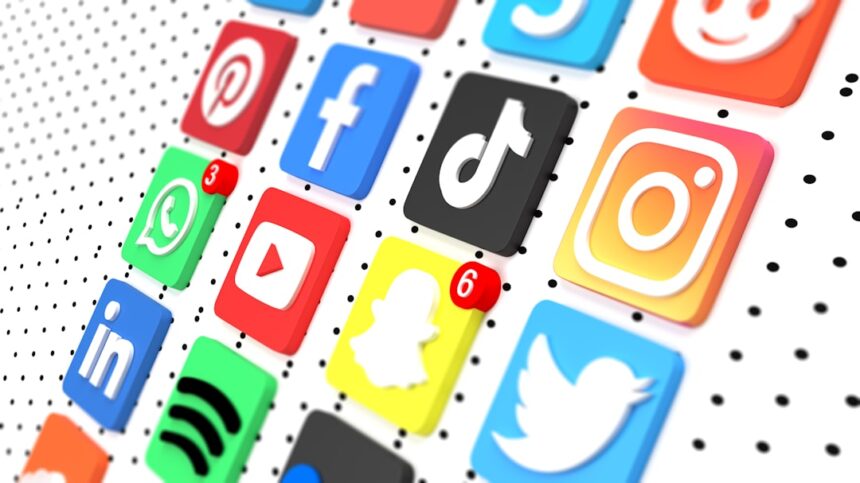In today’s digital age, social media has become an integral part of your daily life. It shapes how you communicate, share experiences, and even perceive the world around you. While it offers numerous benefits, such as staying connected with friends and family, accessing information, and fostering creativity, it also has a profound impact on your mental health and well-being.
The constant barrage of curated images and updates can lead to feelings of inadequacy, anxiety, and loneliness. You may find yourself comparing your life to the seemingly perfect lives of others, which can create a distorted sense of reality. Moreover, social media can influence your self-esteem and body image.
You might scroll through feeds filled with idealized representations of beauty and success, leading to unrealistic expectations for yourself. This can result in a cycle of negative self-talk and dissatisfaction. Understanding these impacts is crucial for you to navigate the digital landscape mindfully.
By recognizing how social media affects your emotions and perceptions, you can take proactive steps to mitigate its negative effects while still enjoying its benefits.
Key Takeaways
- Social media can have a significant impact on mental health and well-being, including increased anxiety and depression.
- Signs of social media urge include constantly checking for notifications, feeling anxious when not using social media, and comparing oneself to others online.
- Setting boundaries and limits on social media use can help reduce its negative impact on mental health.
- Engaging in alternative activities such as exercise, hobbies, and spending time with loved ones can help reduce social media usage.
- Practicing mindfulness and self-awareness can help individuals become more conscious of their social media habits and their impact on mental health.
Recognizing the Signs of Social Media Urge
As you engage with social media, it’s essential to be aware of the signs that indicate you may be developing an unhealthy urge to use these platforms. One common sign is the compulsive need to check your notifications or feed, even when you have other responsibilities or activities that require your attention. You might find yourself reaching for your phone during meals, conversations, or even while driving, which can be a clear indication that your social media usage is becoming excessive.
Another sign to watch for is the emotional response you experience when you’re not able to access social media. If you feel anxious, irritable, or disconnected from others when you’re away from your devices, it may be time to reassess your relationship with these platforms. Recognizing these urges is the first step toward regaining control over your social media habits.
By being mindful of how often and why you reach for your phone, you can begin to make more conscious choices about your online presence.
Setting Boundaries and Limits

Once you’ve recognized the signs of social media urge, it’s important to establish boundaries and limits that promote healthier usage. Start by setting specific times during the day when you allow yourself to check social media. For instance, you might decide to limit your usage to 30 minutes in the morning and 30 minutes in the evening.
This structured approach can help you avoid mindless scrolling throughout the day and encourage you to engage in more meaningful activities. Additionally, consider designating certain areas or times as “social media-free.” For example, you could make your bedroom a sanctuary free from screens or commit to not using social media during family meals or gatherings. By creating these boundaries, you not only reduce your screen time but also enhance your relationships with those around you.
Setting limits empowers you to take control of your social media habits rather than letting them dictate your daily life.
Finding Alternative Activities
| Activity | Number of Participants | Duration (hours) |
|---|---|---|
| Hiking | 25 | 3 |
| Cooking Class | 15 | 2 |
| Art Workshop | 20 | 4 |
To create a more balanced lifestyle, it’s essential to find alternative activities that fulfill you outside of social media. Engaging in hobbies or interests that spark joy can help fill the void left by reduced screen time. Consider exploring activities such as reading, painting, hiking, or even learning a new skill.
These pursuits not only provide a sense of accomplishment but also allow you to connect with yourself on a deeper level. Moreover, participating in group activities or community events can foster real-life connections that social media often lacks. Joining clubs or classes related to your interests can introduce you to like-minded individuals and create opportunities for meaningful interactions.
By diversifying how you spend your time, you’ll find that your reliance on social media diminishes as you cultivate a richer and more fulfilling life.
Practicing Mindfulness and Self-Awareness
Incorporating mindfulness into your daily routine can significantly enhance your self-awareness regarding social media usage. Mindfulness encourages you to be present in the moment and observe your thoughts and feelings without judgment. When you find yourself reaching for your phone, take a moment to pause and reflect on what prompted that urge.
Are you bored?
Seeking validation?
By understanding the underlying motivations behind your social media habits, you can make more intentional choices about when and why you engage with these platforms. Additionally, practicing mindfulness can help reduce stress and anxiety associated with social media. Techniques such as meditation or deep breathing exercises can ground you in the present moment and alleviate feelings of overwhelm.
As you cultivate this awareness, you’ll become more attuned to how social media affects your mood and well-being, allowing you to make adjustments that promote a healthier relationship with technology.
Utilizing Social Media Management Tools

To further support your efforts in managing social media usage, consider utilizing various tools designed to help you stay on track. Many apps are available that allow you to monitor your screen time and set limits on specific platforms. These tools can provide valuable insights into your usage patterns and help you identify areas where you may need to cut back.
Additionally, some apps offer features that block access to social media during designated times or limit notifications that can distract you throughout the day. By leveraging these resources, you can create a more structured approach to your online presence while minimizing distractions that may hinder productivity or personal growth.
Seeking Support from Friends and Family
You don’t have to navigate the challenges of social media alone; seeking support from friends and family can be incredibly beneficial. Share your goals regarding social media usage with those close to you and encourage them to join you in creating healthier habits. Having an accountability partner can motivate you to stick to your limits and explore alternative activities together.
Moreover, discussing your feelings about social media with loved ones can provide valuable perspective and reassurance. They may share similar experiences or offer insights that help you feel less isolated in your struggles. By fostering open communication about social media’s impact on mental health, you create a supportive network that encourages positive change.
Creating a Supportive Environment
Your environment plays a significant role in shaping your relationship with social media.
Curate your feed to include content that inspires and uplifts you rather than content that fosters feelings of inadequacy.
Additionally, create physical spaces in your home that promote activities other than screen time. Designate areas for reading, crafting, or exercising where screens are not allowed. By intentionally designing an environment that encourages engagement in offline activities, you’ll find it easier to step away from social media and invest time in pursuits that enrich your life.
Developing a Healthy Relationship with Social Media
As you work toward establishing healthier habits, it’s essential to redefine your relationship with social media altogether. Instead of viewing it as an escape or a source of validation, consider how it can serve as a tool for connection and creativity. Engage with content that aligns with your values and interests while being mindful of how much time you spend online.
Moreover, practice gratitude for the positive aspects of social media by acknowledging the connections you’ve made or the knowledge you’ve gained through these platforms. By shifting your perspective from one of dependence to one of intentional use, you’ll cultivate a healthier relationship that enhances rather than detracts from your overall well-being.
Seeking Professional Help if Needed
If you find that despite your best efforts, social media continues to negatively impact your mental health or daily functioning, it may be time to seek professional help. A therapist or counselor can provide valuable support as you navigate these challenges and help you develop coping strategies tailored to your unique situation. Therapy can offer a safe space for exploring underlying issues related to self-esteem, anxiety, or depression that may be exacerbated by social media use.
By addressing these concerns with a professional, you’ll gain insights into healthier coping mechanisms and strategies for managing your relationship with technology.
Celebrating Success and Progress
As you embark on this journey toward healthier social media habits, it’s important to celebrate your successes along the way. Acknowledge the small victories—whether it’s reducing screen time, engaging in alternative activities, or feeling more present in conversations without distractions. Each step forward is a testament to your commitment to personal growth.
Consider keeping a journal where you document your progress and reflect on how changes in your social media habits have positively impacted your life. Celebrating these milestones not only reinforces positive behavior but also motivates you to continue striving for balance in an increasingly digital world. Embrace this journey as an opportunity for self-discovery and growth as you cultivate a healthier relationship with social media.
Managing social media urges can be challenging in today’s digital age, where constant connectivity often leads to compulsive checking of notifications and updates. One effective strategy is to set specific times for social media use, allowing for more focused and intentional engagement. Additionally, turning off non-essential notifications can help reduce the impulse to check your phone frequently. For more insights on managing these urges, you might find this article helpful, as it delves into various psychological approaches to unplugging and regaining control over your digital habits.
LEARN WHY Your Brain Isn’t Addicted to Likes; the Algorithm Gaslights You Daily, Hard.
FAQs
What are social media urges?
Social media urges refer to the strong impulses or desires to use social media platforms, often leading to excessive or compulsive use.
Why is it important to manage social media urges?
Managing social media urges is important because excessive use of social media can lead to negative impacts on mental health, productivity, and overall well-being.
What are the best ways to manage social media urges?
Some of the best ways to manage social media urges include setting time limits for social media use, practicing mindfulness and self-awareness, finding alternative activities to engage in, and seeking support from friends, family, or professionals if needed.
How can setting time limits help in managing social media urges?
Setting time limits for social media use can help in managing urges by creating boundaries and promoting a healthier balance between online and offline activities.
What role does mindfulness play in managing social media urges?
Mindfulness can help individuals become more aware of their thoughts and feelings, allowing them to recognize and address social media urges in a more conscious and intentional manner.
Why is it important to find alternative activities to engage in?
Finding alternative activities to engage in can help redirect attention away from social media urges and towards more fulfilling and meaningful pursuits, contributing to overall well-being.




